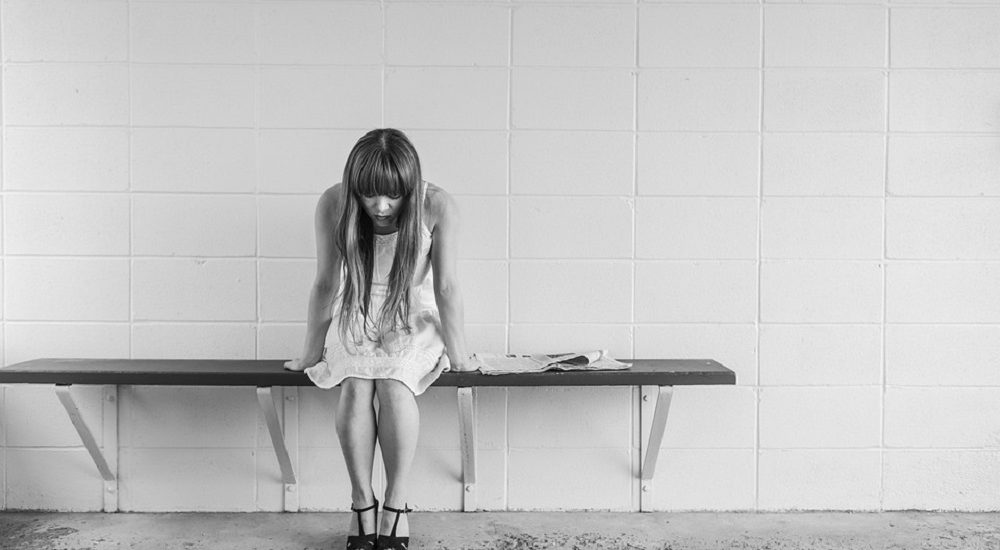Do you think you are depressed or experiencing anxiety? This blog will help you learn more about anxiety and depression and how counseling and other steps can help. To begin with, acceptance is key to overcoming many of these challenges. It is an essential step in the process of managing mental health conditions, and therapy plays a vital role in cultivating acceptance. Depression often starts with a phase where a person feels low and tired when completing daily activities, or they may want to be left alone most of the time. If left untreated, it can lead to serious health concerns.
To better manage anxiety and depression, it is imperative to know the signs and symptoms so you can take the necessary steps towards acceptance.
Signs and Symptoms of Depression
Different people describe depression differently, and its symptoms vary from person to person. You may regularly experience the signs on this list, or they may only happen once in a while. However, if these symptoms persist over time, they can be regarded as depression.
- Feeling helpless and hopeless: A person experiencing depression may feel hollow or empty and believe nothing can brighten their day or make things better.
- Loss of interest in daily activities: Normal tasks, hobbies, entertainment, or sex may all seem pointless, and you may not enjoy activities that you previously did.
- Weight/appetite change: It is common to notice a change in weight due to irregular eating habits.
- Unexpected behavior: People with depression often behave recklessly and take up activities they previously would not do. This could include behaviors like gambling or swearing.
- Self-loathing: You may criticize yourself without reason and doubt your capabilities.
- Sleep disturbances: Your sleeping patterns may change when you experience depression. This can involve insomnia, sleeping more, or waking up at odd hours.
- Pain or aches that cannot be explained: Feelings of sudden, unexplained pain can accompany anxiety and depression.
- Anger/irritability: You may find that you have a lower tolerance for others when you’re depressed. You may even have violent spells or feelings of agitation at the slightest provocation.
Depression Symptoms Vary With Gender And Age
Age and gender can influence symptoms of depression.
Women
Depression in women can be influenced by hormonal factors, and symptoms can be seen during menstruation, pregnancy, or menopause. Postpartum depression is extremely common; 1 in 7 women go through this condition. In this case, women often experience guilt, overeating, weight gain, and excessive sleeping.
Men
Acceptance of depression is often lower among men, and they may struggle to acknowledge feelings of hopelessness. Instead, they are more likely to complain of fatigue and sleep problems and demonstrate irritability due to loss of interest in work and hobbies. Reckless behavior is often exhibited in the form of aggression. They may be likelier to indulge in substance abuse as well.
Older Adults
People in this age group tend to complain more about physical signs than emotional ones. Fatigue, unexplained pains, and memory loss are common.
Teens
Agitation, anger, and irritability are the most common symptoms in teens. They also complain of physical symptoms such as headaches and stomach aches.
Therapy for Anxiety and Depression
Depression and anxiety go hand in hand; there is a good chance that depression may coexist with anxiety or vice versa. Once you have identified signs and symptoms of depression, here are a few things you can do to better manage your condition and build the life you want.
Counseling
Talking often helps, so why not seek help from a professional? A licensed counselor is trained and experienced at helping you work through your feelings and develop healthier coping mechanisms. Counseling gives you an outlet to open up and discuss matters you might not be comfortable discussing with your loved ones.
Get Support
Discuss your feelings with trusted family members or close friends and tell them how you feel. A strong support system can help you deal with mental health issues.
Balanced Diet
A poor diet can trigger or worsen depression. Reduce your sugar, caffeine, and alcohol intake, and prioritize minimally processed food to promote your mental health.
Exercise
Endorphins are released when you exercise. They are called feel-good hormones because they improve your mood, and they act as analgesics, which means they help ease pain in the body. Regular exercise is a practical step that can improve multiple symptoms of depression.
Steps to Improve Self
- Declutter
- Set new goals
- Develop a new hobby
- Explore your creativity
- Do meaningful work
Conclusion
Taking the steps towards acceptance can help you focus on making things better. With therapy and some of the practical measures we’ve discussed, you can take leaps and bounds in managing depression and anxiety. Set aside some time to assess which of these steps will be most helpful for you, and start your journey to a more fulfilling life.
Author Bio:
 Aaron Smith is an LA-based content strategist and consultant in support of STEM firms, medical and mental health practices. He covers industry developments and helps companies connect with clients. In his free time, Aaron enjoys swimming, swing dancing, and sci-fi novels.
Aaron Smith is an LA-based content strategist and consultant in support of STEM firms, medical and mental health practices. He covers industry developments and helps companies connect with clients. In his free time, Aaron enjoys swimming, swing dancing, and sci-fi novels.

